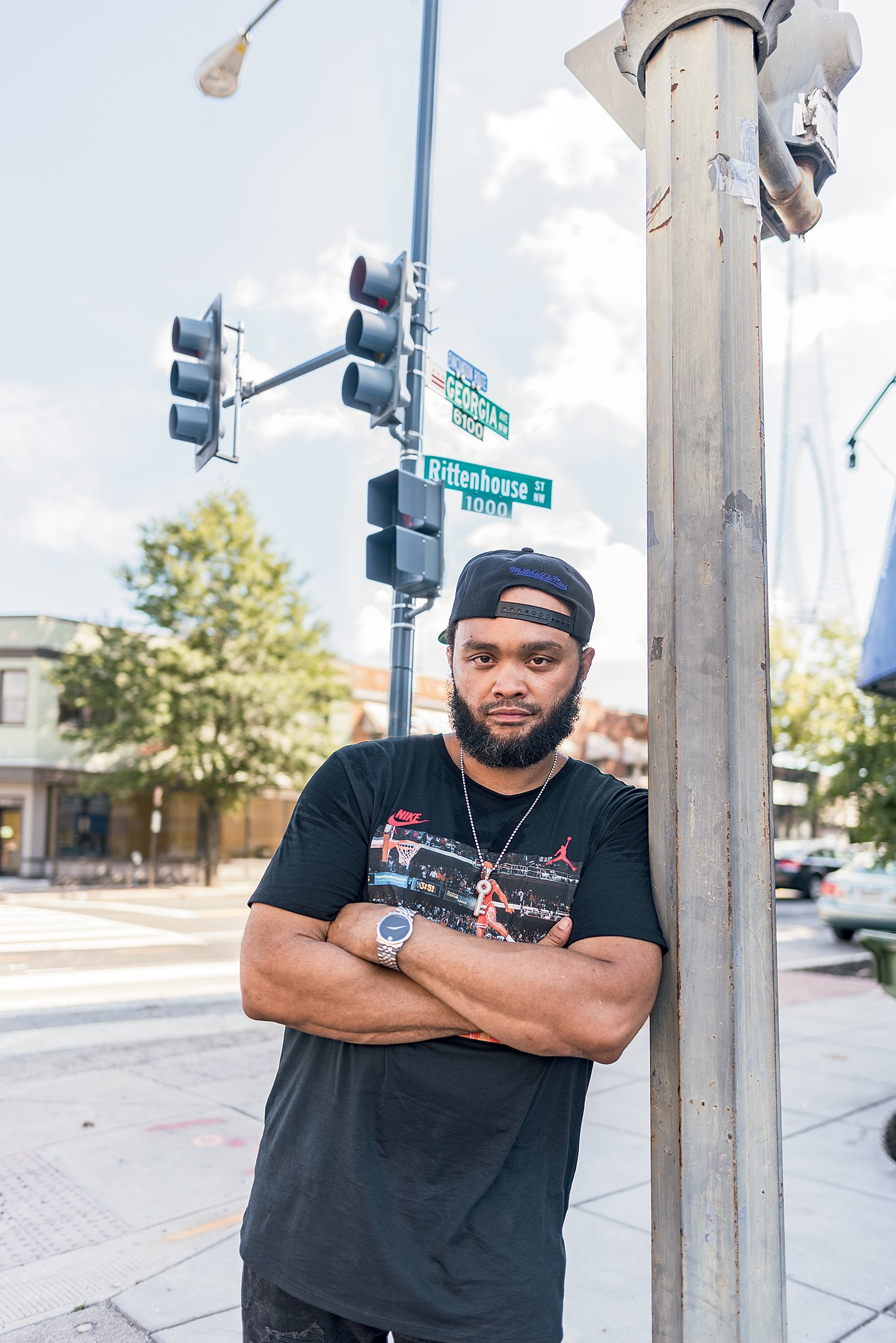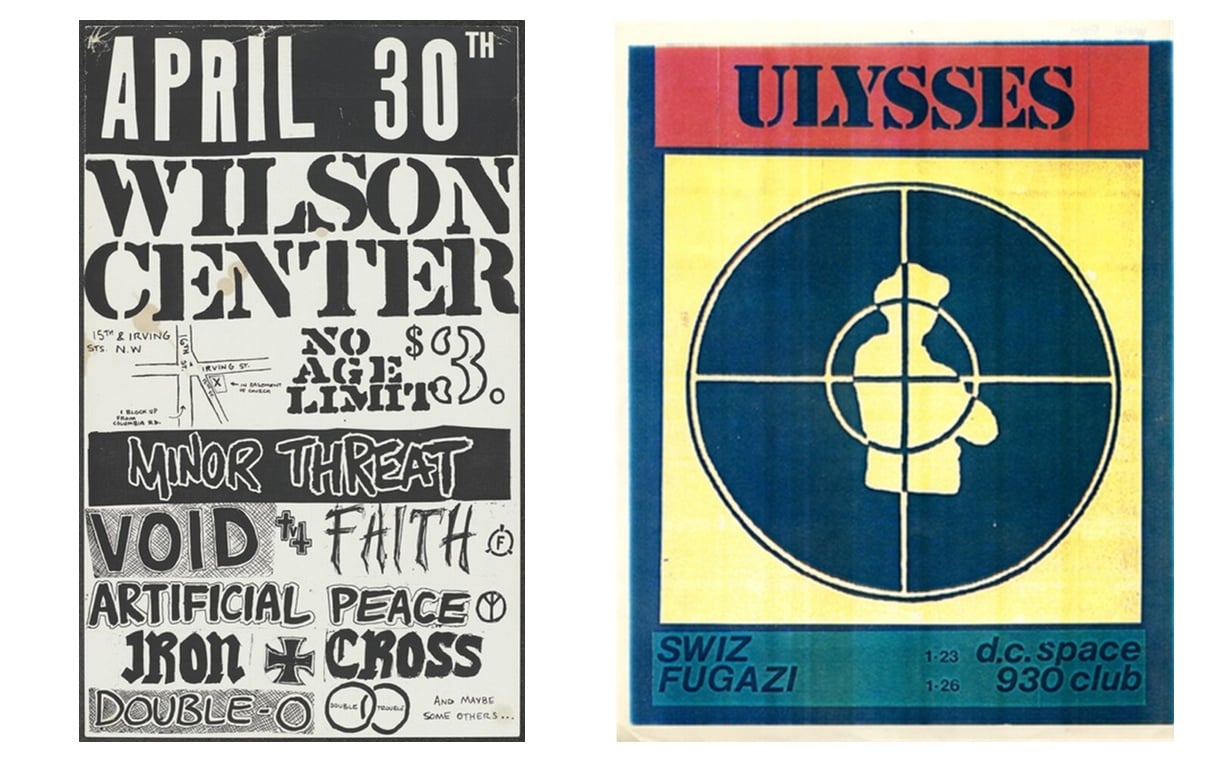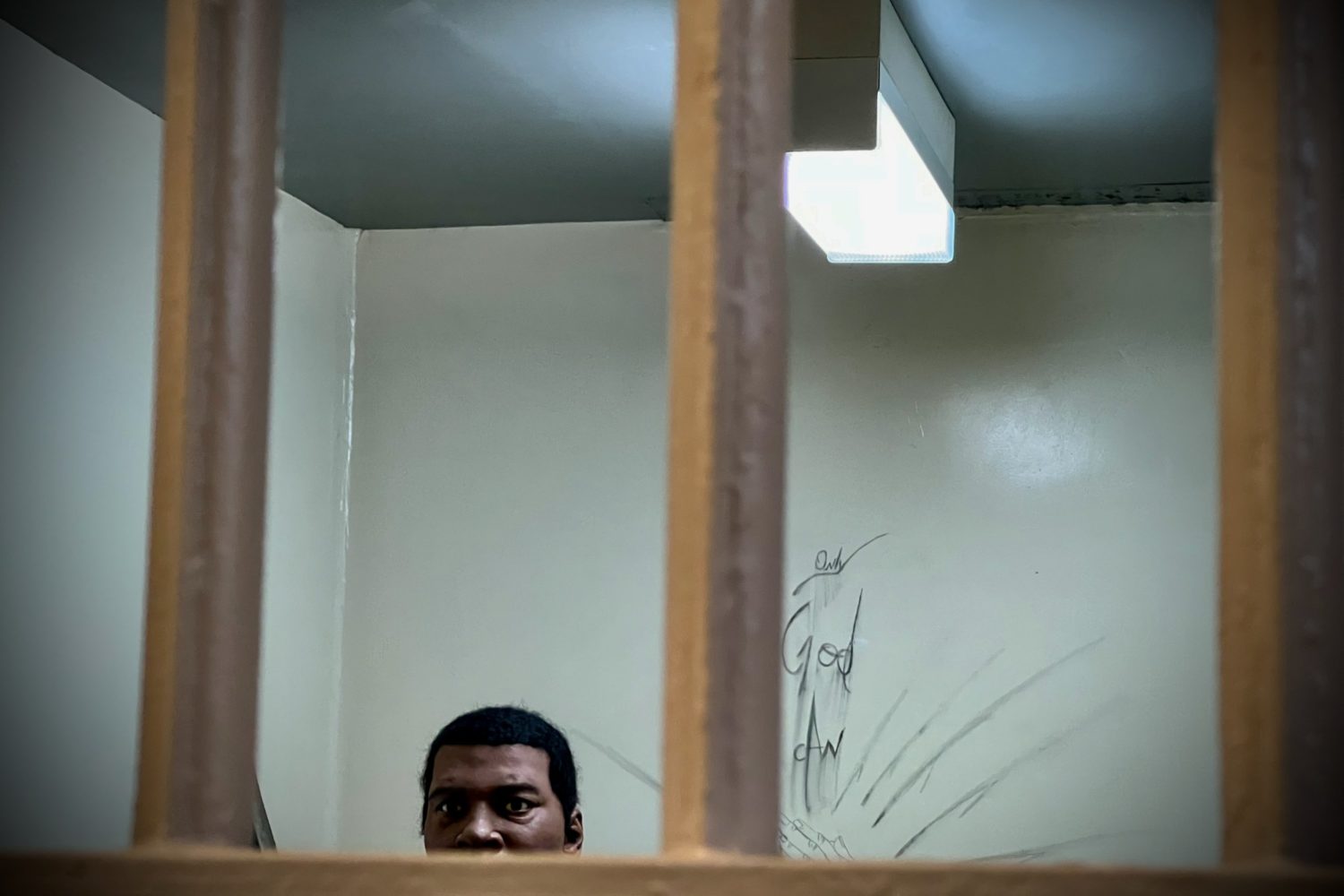One of the most requested books at the DC Jail’s library is something it doesn’t even carry. The jail’s full-time librarian, Danielle Zoller, is asked about it every week—up there even with other inmate favorites like the Game of Thrones and Harry Potter books. The novel, by local author Eyone Williams, is called Lorton Legends, and it’s no surprise that officials would keep it off the shelves, given its brutal depictions of prison violence. You also won’t find it at Politics and Prose or Kramerbooks. All the same, thousands of copies are in print.
I first got interested in Lorton Legends after seeing it mentioned in The Man Who Came Uptown, the latest book from acclaimed DC crime novelist George Pelecanos. That book tells the story of an inmate in the DC Jail who forges a friendship with the facility’s librarian. “It’s sort of a love letter to reading and the power of books,” says Pelecanos, who for years has led book groups at the jail and often spends time talking to inmates. “I see these guys kind of light up. Very enthusiastic, a lot of obsessive readers. The guys that love to read in lockup are more fanatical about reading than anybody I’ve ever met.”
The DC Jail has a notably vibrant book-lending program—actually an official branch of the DC Public Library system. Once run from a cart that Zoller would push around the jail, the library opened a walk-in space in 2017. Now inmates can choose from more than 12,000 titles, and so far more than 13,000 people have checked out more than 85,000 books. “We’ve been able to reach out to people who haven’t exactly had a long relationship with pleasure reading,” says Zoller. “They’ve discovered it for the first time. Fiction is great because it helps us empathize. It helps us see places that we’ve never seen and meet people we’ve never met.”
After finishing Pelecanos’s book, I ordered Lorton Legends on Amazon, curious to see what made it so popular. I also read another of Williams’s books, Fast Lane, which is set on the streets of Manor Park during the early ’90s, at the height of the city’s “murder capital” years. The books turned out to be raw and often disturbing, but also fascinating: vivid, complicated renderings of a world most people don’t have access to.
As I soon learned, Williams and I grew up less than five miles from each other, on opposite sides of Rock Creek Park in Northwest DC. But while I mostly experienced the mayhem of the late ’80s and early ’90s on the local news, Williams was right in the middle of it—not just a resident but a participant.
I wanted to meet Williams and hear his story. Not so long ago, that would have been difficult: Both Lorton Legends and Fast Lane, it turned out, were written while he was doing a long stretch in prison for first-degree murder.
I met up with Williams one afternoon at the Woodridge library in Northeast DC, where he used to spend a lot of time writing when he lived in the neighborhood a few years back. Wearing a Cleveland Cavaliers baseball cap and a red T-shirt from a friend’s streetwear company, Teflon Sports Apparel, the soft-spoken author had a full beard and a mild manner.
Williams was mostly raised by his aunt. His father was locked up in Virginia’s Lorton Reformatory for much of his childhood, and his mother died of a drug overdose when he was six. He was first drawn to DC’s rough streets when he was in middle school, unable to resist a world that at the time he perceived as exciting and glamorous. “I got caught up in that type of lifestyle, the thug lifestyle, the teenage lifestyle,” he told me. “The inner-city climate back then was aggressive. I’m not going to sugarcoat it or make no excuses for how we was behaving back then, those of us that was in the streets.”
In 1993, when he was a freshman in high school, Williams was arrested in connection with the murder of Daren Ware, who was found shot to death in the back seat of a car near Coolidge High School, according to a Washington Post account at the time. He was charged as an adult: first-degree murder, among other crimes. “I wasn’t no angel in the matter,” he acknowledged when I asked him about it, but he said he wasn’t the one who pulled the trigger. To avoid testifying against people he was with (and hoping to get a lesser sentence than if he were convicted at trial), he pleaded guilty to first-degree murder.
When I needed to eat and crime was available and books was available, I chose books.
While Williams was in jail waiting to be sentenced, his cousin, Markelle Wilson—whom he lived with and thought of as a brother—was stabbed to death on a playground near their house during what Williams said was an apparent dispute over a basketball game. “The Markelle thing was painful to the point that it made me look at life and look at the things that I considered important,” he said. “A lot of times when you’re young and wild and you’re running around in the streets, you get numb to it. But the Markelle situation made me ask a question: Like, what is all of this for?”
By that point, it was too late. Just a few days later, Williams, then 17, was sentenced in DC Superior Court: 15 years to life. He would end up spending 17 years behind bars.
Williams still remembers the day he became a novelist. It was 1998, and he was in his cell inside a prison in Arizona. He had always been drawn to words—he recalls reading the encyclopedia when he was a kid—and loved the work of urban-fiction pioneers such as Donald Goines. Locked up 23 hours a day and often bored, he realized that day that he could fictionalize his own story. “It was an experiment,” he said. “I was in the cell by myself, and we was locked down. I was reading, doing pushups, reading, doing pushups. I was just like, ‘I’m going to start a book. I don’t know if I’ll ever finish it, but I’m going to start.’”
The story he began to write was based on his relationship with Markelle and also offered an exaggerated version of his own experiences on the streets. “It’s almost like a rap video on paper,” he said. “I wanted to tell the story of what we went through, but I made it a little more action-packed, a little more motion-picture-like. Some days I’d type three pages, some days I’d type no pages, some days I’d type 30 pages. It was just something I kept doing.”
Other inmates began to notice what he was up to, and he soon had a bunch of readers who were hooked on the story, passing around pages as he wrote them. “There may be days I didn’t write,” Williams said. “It was guys saying, ‘Shorty, finish that book! Man, that book good.’ They would bother me about it. So I was like, let me just keep playing with it.” Eventually, he got to the point where he had written a whole novel. He called it Fast Lane.
Lorton Legends was a more ambitious project. Williams envisioned it as a fictionalized history of the notoriously rough Virginia facility where he’d spent the first years of his sentence, before it was finally shut down and he was transferred to a series of penitentiaries around the country. The story focuses on four friends who are sent to Lorton as teenagers and grapple with significant sentences and horrific conditions.
Williams’s own time at Lorton informed the tale, of course, but he also included stories he’d heard from his father and real events he researched in the Washington Post archives. It’s set over the course of four decades, beginning in the ’70s.
While the history is interesting, it’s Williams’s characters that particularly stick with you, especially the book’s hero, Ronald Mays. “Some of those struggles those guys go through, especially the ones that was trying to go from negative to positive, that’s my story,” Williams said. “Lorton Legends will show you how I grew up and I became my own man. Ronald is not me at all, but his desire to succeed and teach himself, his struggles to do right and fight against wrong and maintain loyalties and friendships while trying to transition to a more positive life—that was me.”
Williams got out of prison in 2010, when he was 32. Faced with the prospect of supporting himself, he decided to get serious about writing as a business. Williams started a company called Fast Lane Entertainment and began selling copies of Fast Lane around DC. He also found a home for Lorton Legends: DC Bookdiva, a local publisher known for the Dynasty series by the writer Dutch and other titles. When Lorton Legends came out in 2011, it quickly proved popular, taking Williams to a new level of recognition.
Since then, he says he has sold more than a hundred thousand books. But publishing is a tough business, and money is tight. While we were at the library, Williams talked about how he couldn’t afford to get his car out of the shop because he’d recently spent the funds getting more books printed. (He explained that each book costs him about $3, and they retail for $15.)
He now supports himself entirely through writing, he says, hauling books to the post office from the Takoma DC house he shares with his girlfriend. “There’s been good and bad,” he told me. “It’s much better now because I’ve figured out the online game and the distribution game. But I’m a hustler. I used to print 5,000, 10,000 of my own books, hop in my car, and run the city. I’d make $400 one day, $1,700 one day, zero dollars one day. That’s how I started. Now it’s a business: You can get it from Amazon. It’s not just out my trunk no more. But when I needed to eat and crime was available and books was available, I chose books.”
The central character in George Pelecanos’s new book is, like Williams, somebody who gets out of jail and tries to take his life in a different direction. It’s a question that recurs in a lot of Pelecanos’s work: How can people overcome bad circumstances and terrible mistakes to reclaim their lives? “I have a common theme in a lot of my books, which is that people can change,” Pelecanos says. “You know, redemption.” It’s a narrative that Williams is sometimes drawn to as well. For all of Lorton Legends’ ruthless brutality, it’s ultimately a story of transformation. Unexpectedly, it has a happy ending.
For Williams himself, things are less certain. In many ways, he’s turned his life around. He now has a whole catalog of books in print, including a popular series called Hell Razor Honeys—put out by Baltimore publisher the Cartel Publications—that has two installments currently available and a third on the way. He has completed another novel, is working on a nonfiction book, and has a couple of TV and documentary-film projects in the pipeline.
But court records reveal something that complicates the story: He was arrested in 2016 and has been charged with distribution of a controlled substance and other crimes. The case has been working its way toward trial, and though he can’t talk about the specifics, he’s adamant that he’s not guilty, and he seems confident he’ll be acquitted when the time comes. “I trust that the facts gonna come out,” he told me when I called to ask him about it after our first interview. “But of course I feel some type of stress. At some points, it affects my creativity. Being that you spent 17 years in prison and you got a chance to go back, it’s a terrible thing. It’s not a good thing at all.” His trial is set for January.
UPDATE: After a series of delays, the trial was rescheduled for March 14, 2019. But on February 26, prosecutors filed a motion to dismiss and the charges against Williams were subsequently dropped. “It feels great to come out of a bad situation and be able to get your normal life back,” Williams says now. “For me it feels far greater because a setback to prison would not be letting myself down, but all that believe in me and support me. Now I can get back to writing and making dreams come true.”
This article appears in the November 2018 issue of Washingtonian.




















